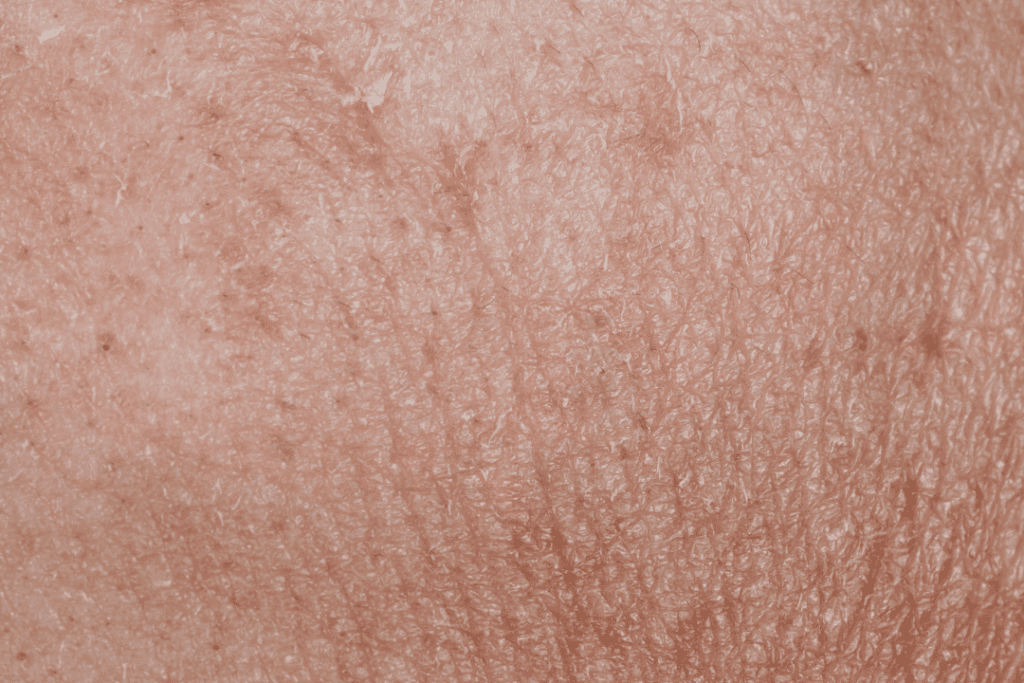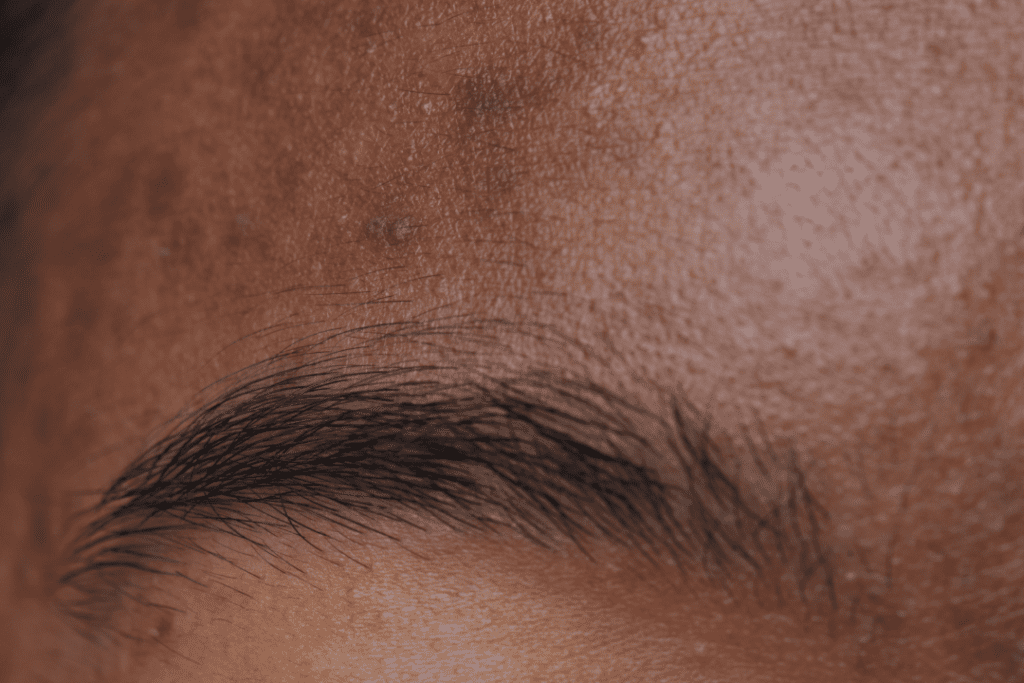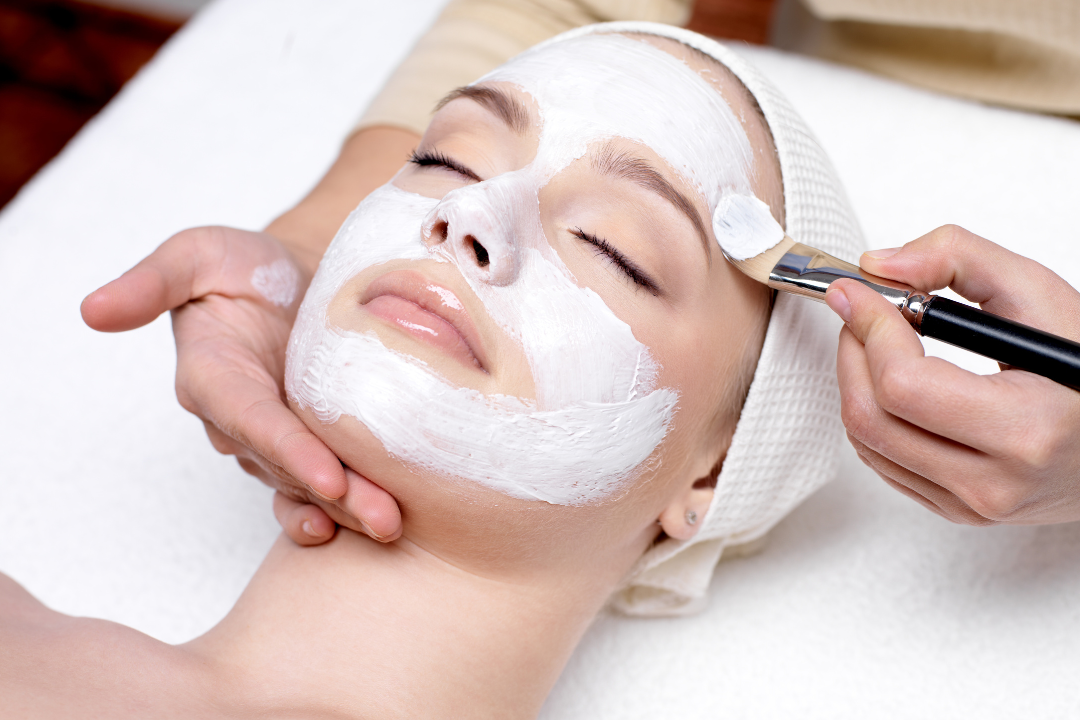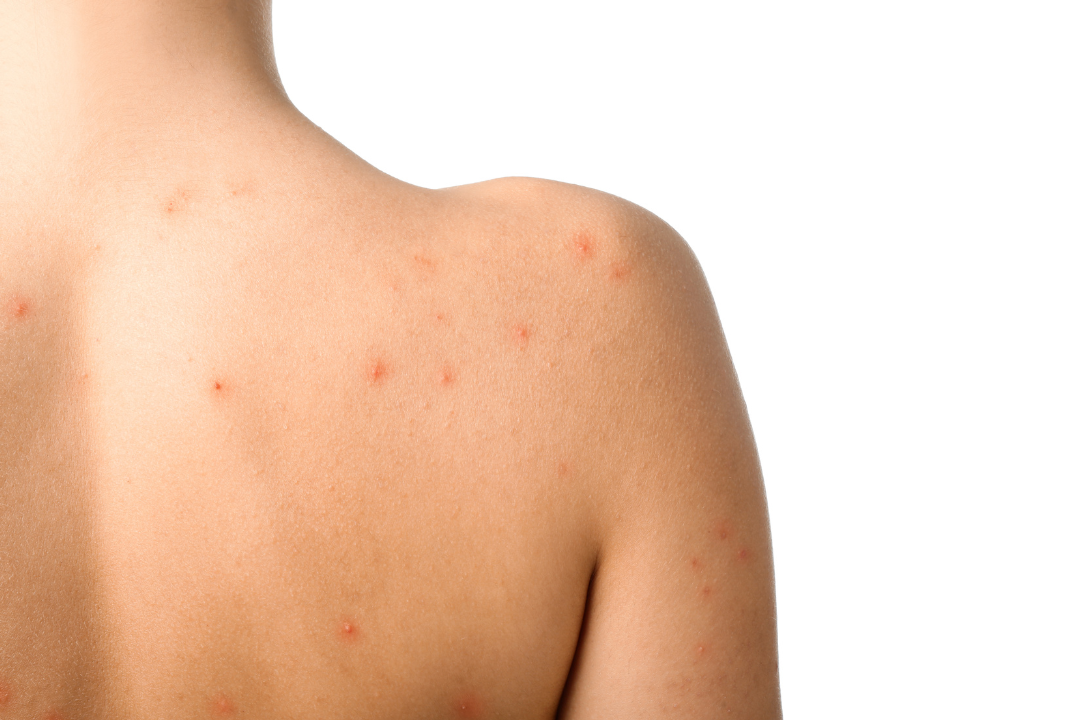Are you struggling with uneven skin texture? You’re not alone. Many Canadians face this issue, which can affect their confidence and skin health. But there’s hope! Dermatologists have shared effective ways to smooth and refine your skin.

Uneven skin texture can show up in many ways, like bumps or large pores. While some texture is natural, too much can come from things like skincare habits, environmental factors, and genetics. The good news is, you can fix it with the right approach.
To improve your skin texture, dermatologists suggest a mix of treatments. This includes chemical exfoliation, retinoids, and proper hydration. With these methods and a consistent skincare routine, you can change your skin for the better.
At OasisMD in Vancouver, we know how important personalized skincare is. Our experts at 8138 Granville Street are here to help you get smoother, healthier-looking skin. Call us at 604 630 3833 or email info@oasismd.ca to see how we can help you reach your skincare goals.
Key Takeaways
- Uneven skin texture is a common concern affecting many Canadians
- Textured skin can result from various factors, including skincare habits and genetics
- Dermatologists recommend a combination of treatments to improve skin texture
- Chemical exfoliation, retinoids, and proper hydration are key components of texture improvement
- Consistent skincare routines are essential for maintaining smooth, healthy-looking skin
- Professional guidance can help tailor a skincare plan to your specific needs
Understanding Skin Texture and Its Causes
Your skin’s texture is key to its look and health. Let’s dive into what skin texture means and what affects it.
What is skin texture?
Skin texture is how your skin feels when you touch it. It should be smooth and soft. But, many things can make your skin rough and bumpy, leading to an uneven texture.
Common causes of uneven skin texture
Several skin issues can cause textured skin:
- Dead skin cell buildup
- Sun damage
- Dehydration
- Acne
- Eczema
These problems can make your skin feel rough, have bumps, or feel uneven overall.
The role of genetics and environment
Your genes greatly affect your skin texture. They shape things like:
| Genetic Factors | Environmental Factors |
|---|---|
| Likelihood of breakouts | Sun exposure |
| Tendency for dry skin | Pollution |
| Natural oil production | Climate |
Things around us can make textured skin worse by harming collagen and lowering oil production. At OasisMD in Vancouver, we know how complex this is. We offer custom treatments for your skin issues. Call us at 604 630 3833 or visit us at 8138 Granville Street to find out how to better your skin texture.
The Power of Chemical Exfoliation
Chemical exfoliation changes the game for smoother, fresher skin. It’s gentler than harsh physical scrubs, breaking down dead skin cells. This reveals brighter skin underneath. It also helps cells turn over and improves skin texture.
The most common chemical exfoliants include:
- Glycolic acid: Derived from sugarcane, it penetrates deeply to exfoliate and hydrate
- Lactic acid: A gentle option that moisturizes while it exfoliates
- Salicylic acid: Ideal for acne-prone skin, it unclogs pores and reduces inflammation
Start with once-weekly chemical exfoliation in your routine. Slowly increase to twice a week as your skin gets used to it. But don’t overdo it, as it can cause irritation and sensitivity.
“Chemical exfoliation is a crucial step in achieving smoother, more radiant skin. It’s important to choose the right exfoliant for your skin type and use it correctly,” says Dr. Sarah Chen, dermatologist at OasisMD in Vancouver.
| Exfoliant Type | Best For | Frequency |
|---|---|---|
| Glycolic Acid | Mature skin, hyperpigmentation | 1-2 times per week |
| Lactic Acid | Sensitive skin, dryness | 2-3 times per week |
| Salicylic Acid | Oily skin, acne | 2-3 times per week |
For personalized advice on chemical exfoliation, visit OasisMD at 8138 Granville Street, Vancouver BC, or call 604 630 3833. Their experts can help you choose the right exfoliant for your skin type and concerns.
Harnessing the Benefits of Vitamin C Serums
Vitamin C serums are key in skincare for their power to change skin texture. This antioxidant brings many benefits for smoother, brighter skin.
How Vitamin C Improves Skin Texture
Vitamin C is amazing for your skin. It fights off free radicals, lightens dark spots, and helps make more collagen. This leads to smoother, tighter skin with less fine lines. It also makes your skin look brighter and healthier.
Choosing the Right Vitamin C Product
When picking a vitamin C serum, choose stable ones. L-ascorbic acid is the strongest type. Look for products with 10-20% concentration for the best effects. Adding vitamin E and ferulic acid makes it even better.
Incorporating Vitamin C into Your Skincare Routine
Put your vitamin C serum on after cleaning and toning, but before moisturizing. Use it once or twice a day for the best look. Don’t forget sunscreen during the day since vitamin C makes your skin more sensitive to the sun.
“Vitamin C is a game-changer for skin texture. It’s like a daily dose of radiance for your face,” says Dr. Sarah Lee, dermatologist at OasisMD in Vancouver.
For personalized advice on using vitamin C in your skincare, visit OasisMD at 8138 Granville Street, Vancouver BC, or call 604 630 3833. Their expert team can guide you to your skin texture goals.
The Importance of Daily Sunscreen Application

Protecting your skin from harmful UV rays is key to keeping it smooth and youthful. Using sunscreen every day shields your skin from damage. This helps stop fine lines, wrinkles, and skin texture issues. At OasisMD in Vancouver, we stress the need to add sunscreen to your daily skincare.
UV rays can go through your skin even on cloudy days or when you’re inside. So, it’s vital to use sunscreen daily, no matter the weather or your activities. Pick a broad-spectrum sunscreen with at least SPF 30 for full protection against UVA and UVB rays.
“Sunscreen is your skin’s best friend. It’s the most effective tool in preventing premature aging and maintaining healthy skin texture,” says Dr. Sarah Thompson, dermatologist at OasisMD.
Apply sunscreen all over your face, neck, ears, and any other exposed skin to get the most out of it. Put it on again every two hours, especially if you’re outside or in the water. Remember, protecting your skin from the sun is important all year.
| Sunscreen Type | Best For | SPF Range |
|---|---|---|
| Chemical | Oily/Acne-Prone Skin | 30-50 |
| Mineral | Sensitive Skin | 30-50+ |
| Tinted | All Skin Types | 30-50 |
For personalized advice on the best sunscreen for your skin, visit OasisMD at 8138 Granville Street, Vancouver BC, or call us at 604 630 3833. Our experts can guide you in creating a skincare plan that includes great sun protection strategies.
Retinoids: The Gold Standard for Skin Texture Improvement
Retinoids are powerful vitamin A derivatives that change the game in skin care. They make skin smoother, fight acne, and reduce fine lines. At OasisMD in Vancouver, we guide you on using retinoids for the best skin.
Types of Retinoids and Their Effects
There are different retinoids, each with its own benefits:
- Retinol: A gentle option for beginners
- Retinaldehyde: Stronger than retinol, ideal for intermediate users
- Tretinoin: A prescription-strength retinoid for advanced needs
Vitamin A derivatives like retinoids increase cell turnover and collagen production. This leads to smoother, firmer skin.
Introducing Retinoids to Your Skincare Regimen
When adding retinoids to your routine, start slow:
- Choose a low-concentration product
- Apply 2-3 times a week at night
- Gradually increase frequency as your skin adjusts
- Always use sunscreen during the day
Potential Side Effects and Precautions
Retinoids have great benefits but can cause irritation. Watch for:
| Side Effect | Management |
|---|---|
| Dryness | Use a rich moisturizer |
| Redness | Reduce frequency of use |
| Peeling | Apply over moisturizer |
| Sun sensitivity | Wear broad-spectrum SPF daily |
For personalized advice on retinoids, visit OasisMD at 8138 Granville Street, Vancouver BC, or call us at 604 630 3833. Let’s work together to improve your skin texture and boost your confidence!
Hydration: The Key to Smoother Skin
Keeping your skin hydrated is key to smoother, healthier-looking skin. When you focus on hydration, your skin’s texture can improve a lot. Let’s see how to increase your skin’s moisture and make it look better.
Using a top-quality moisturizer is the first step in skin hydration. Put it on twice a day to up your skin’s water levels and fix its protective layer. Choose products with hyaluronic acid or ceramides. These ingredients are great for your skin’s texture.
- Hyaluronic acid attracts and retains water, helping to plump up your skin
- Ceramides are fatty acids that lock in moisture and protect your skin
- Both ingredients help smooth dry, flaky patches without causing breakouts
Adding a hyaluronic acid serum to your routine can help keep moisture in your skin. This step can make your skin hold moisture better all day.
“Consistent hydration is the secret to maintaining a smooth, supple skin texture,” says Dr. Sarah Chen, a dermatologist at OasisMD in Vancouver.
But hydration isn’t just about creams and lotions. Drinking lots of water and eating foods full of fruits and veggies helps your skin from the inside out. Making hydration a priority sets the stage for smoother, glowing skin.
For advice on better skin texture through hydration, visit OasisMD at 8138 Granville Street, Vancouver BC, or call 604 630 3833 to book a consultation.
Microneedling: A Professional Treatment for Textured Skin
Microneedling is a top-notch treatment that changes your skin texture. It’s a gentle way to fix acne scars, fine lines, and wrinkles. At OasisMD in Vancouver, we use this method to make your skin smoother and brighter.
During microneedling, tiny needles make tiny holes in your skin. This starts your body’s healing process, making more collagen and new skin cells. You end up with skin that looks younger and feels better.
Microneedling is great for:
- Reducing acne scars
- Smoothing fine lines and wrinkles
- Minimizing pores
- Evening skin tone
- Improving skin texture
You’ll need several treatments for the best results. Most people start to see changes after 3-6 months. At OasisMD, we can make your microneedling work even better with platelet-rich plasma (PRP). This boosts collagen and fades scars more effectively.
| Treatment | Number of Sessions | Spacing Between Sessions | Visible Results |
|---|---|---|---|
| Microneedling | 3-6 | 3-8 weeks | 3-6 months |
| Microneedling with PRP | 3-4 | 4-6 weeks | 2-3 months |
Want to improve your skin texture? Call OasisMD at 604 630 3833 or visit us at 8138 Granville Street, Vancouver BC. Our team will tailor a treatment plan for you. We aim to give you the smooth, glowing skin you’ve always wanted.
The Benefits of Professional Chemical Peels
Chemical peels are a great way to improve your skin’s look and feel. They work by removing the top layers of skin. This process helps new cells grow and boosts collagen production.

Different Types of Chemical Peels
There are different levels of chemical peels:
- Light peels: Gentle exfoliation for mild skin concerns
- Medium peels: Address moderate issues like fine lines and uneven texture
- Deep peels: Target severe skin damage and deeper wrinkles
What to Expect During and After a Peel
When you get a chemical peel, you might feel a slight tingling. Right after, your skin might look red and feel sensitive. Healing times vary, from a few days for light peels to weeks for deeper treatments. It’s important to follow the aftercare instructions closely for the best results.
Choosing the Right Peel for Your Skin
Choosing the right chemical peel depends on your skin type and what you want to fix. Talk to a dermatologist to find the best one for you. For big sun damage, a medium-depth peel can work wonders. But, if you have darker skin, be careful because there’s a risk of uneven skin color.
“Professional chemical peels can dramatically improve skin texture, but it’s essential to choose the right treatment for your unique needs,” says Dr. Sarah Chen at OasisMD in Vancouver.
For personalized advice on chemical peels and other treatments, visit OasisMD at 8138 Granville Street, Vancouver BC, or call 604 630 3833. Their expert team can help you get smoother, brighter skin.
Laser Resurfacing: Advanced Technology for Skin Texture
Laser resurfacing is a top-notch skin treatment becoming more popular in Canada. It uses light energy to make skin smoother and tackle different skin issues. At OasisMD in Vancouver, we use the latest laser treatments for smoother, younger-looking skin.
This treatment removes damaged skin layers and boosts collagen production. It’s great for sun damage and texture problems. You’ll see better skin in about a month after the treatment.
It’s smart to get laser treatment in fall or winter to avoid sun damage. This timing also helps protect your skin from getting too sensitive after the treatment. You might need more than one session for the best results.
“Laser resurfacing has changed how we treat skin texture issues. It’s a key tool in our skincare,” says Dr. Sarah Chen, lead dermatologist at OasisMD.
Here’s what laser resurfacing can do for your skin:
| Benefit | Description |
|---|---|
| Collagen Stimulation | Boosts natural collagen production for firmer, plumper skin |
| Sun Damage Repair | Reduces appearance of sun spots and uneven pigmentation |
| Texture Improvement | Smooths rough patches and minimizes fine lines |
| Pore Refinement | Helps shrink enlarged pores for a more even complexion |
Want to improve your skin? Call OasisMD at 604 630 3833 or email info@oasismd.ca to set up a laser resurfacing consultation. Visit us at 8138 Granville Street, Vancouver BC, for a customized treatment plan.
Lifestyle Factors That Affect Skin Texture
Your daily habits greatly affect your skin health. Let’s look at how different lifestyle choices impact your skin texture.
Eating right is key for your skin. A diet full of fruits, veggies, and omega-3 fatty acids can make your skin look better. Foods packed with antioxidants, like berries and leafy greens, fight off skin-damaging free radicals.
Drinking enough water is also vital. It keeps your skin hydrated and elastic. Try to drink at least 8 glasses of water each day for the best results.
Smoking is bad for your skin. It cuts down on blood flow, making your skin look dull and age faster. Quitting can really help improve your skin’s texture.
Managing stress is important for your skin. Too much stress can cause breakouts and uneven skin. Try relaxing with yoga or meditation to keep stress down.
Getting enough sleep helps your skin repair and regenerate. Aim for 7-9 hours of good sleep each night for glowing skin in the morning.
| Lifestyle Factor | Impact on Skin Texture | Recommended Action |
|---|---|---|
| Diet | Improves skin appearance | Eat antioxidant-rich foods |
| Hydration | Maintains skin elasticity | Drink 8+ glasses of water daily |
| Smoking | Causes premature aging | Quit smoking |
| Stress | Leads to breakouts | Practice relaxation techniques |
| Sleep | Aids skin repair | Get 7-9 hours of sleep nightly |
For personalized advice on improving your skin texture through lifestyle changes, visit OasisMD at 8138 Granville Street, Vancouver BC. Contact them at 604 630 3833 or info@oasismd.ca for expert guidance on your skin health journey.
Conclusion
Improving your skin’s texture is a journey. It mixes daily skincare with professional treatments. Using chemical exfoliants, retinoids, and Vitamin C serums can make a big difference. Remember, always apply sunscreen daily to keep your skin healthy and looking great.
For deeper issues, try professional treatments like microneedling, chemical peels, and laser resurfacing. These are available at places like OasisMD in Vancouver. They can deeply rejuvenate your skin.
Everyone’s skin is different. What helps one person might not help another. Always talk to a board-certified dermatologist for a plan that fits your skin’s needs. If you’re in Vancouver, call OasisMD at 604 630 3833 or visit them at 8138 Granville Street. They can help you find the best way to improve your skin texture.
With patience, consistency, and the right mix of home care and professional treatments, you can get smoother, healthier-looking skin. Start your journey to better skin texture today!
FAQ
What is skin texture?
Skin texture is how smooth or rough your skin feels. It can be affected by dead skin cells, sun damage, dehydration, and skin conditions like acne or eczema.
What role do genetics and the environment play in skin texture?
Your genes can affect your skin texture, making it more prone to breakouts or dryness. The environment also plays a part. Sun exposure and pollution can dry out your skin, reduce natural oils, and break down hyaluronic acid, leading to collagen loss.
How does chemical exfoliation improve skin texture?
Chemical exfoliation helps remove dead skin cells, making your skin look smoother and fresher. It’s better than physical exfoliation because it doesn’t cause micro-tears. Ingredients like glycolic acid, lactic acid, and salicylic acid are key.
What are the benefits of using Vitamin C serums?
Vitamin C is a strong antioxidant that makes your skin look better and brighter. It helps fix texture problems from sun damage, lightens dark spots, and boosts collagen production. This makes your skin firmer and less wrinkled.
Why is daily sunscreen application important for skin texture?
Using sunscreen every day is key to keeping your skin smooth and preventing sun damage. It stops UV rays from breaking down collagen, which can cause wrinkles, fine lines, and loose skin.
How do retinoids improve skin texture?
Retinoids come from vitamin A and are great for smoothing out skin texture. They help with acne, clogged pores, or fine lines by making cells turn over faster and boosting collagen. This reduces the look of wrinkles and fine lines.
Why is hydration important for improving skin texture?
Keeping your skin hydrated is crucial for a better texture. Use a moisturizer twice a day to keep your skin moist and fix the skin barrier. Look for products with hyaluronic acid or ceramides.
What is microneedling, and how does it help with textured skin?
Microneedling uses tiny needles to poke the skin, which helps make more collagen and turn over cells. It’s good for fixing texture problems like fine lines, wrinkles, dark spots, big pores, and acne scars.
How do professional chemical peels improve skin texture?
Chemical peels are done by a pro and use a special solution to remove skin layers. This starts cell turnover and makes more collagen. Peels can be light or deep, with the deeper ones fixing big sun damage.
What is laser resurfacing, and how does it address skin texture concerns?
Laser resurfacing is a deep treatment that uses light to make more collagen and remove skin layers. It’s great for fixing sun damage and serious texture issues.
What lifestyle factors can impact skin texture?
Your lifestyle affects your skin texture a lot. Eating well, drinking enough water, not smoking, managing stress, and sleeping well are all important for keeping your skin smooth and healthy.



